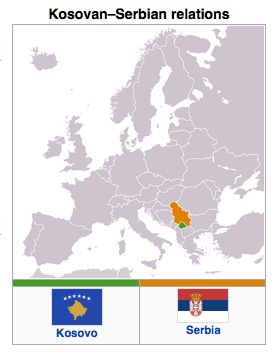Kosovo And Serbian PMs Set For Second Meeting
By Bojana Barlovac
Hashim Thaci and Ivica Dacic are expected to meet for a second time in Brussels following their talks with US and EU diplomacy chiefs.
The Kosovo and Serbian leaders are expected to hold a joint meeting with the EU foreign policy chief Catherine Ashton on November 7 in Brussels, an EU diplomat told Balkan Insight.

Ashton’s spokeswoman, Maja Kocijancic, said Ashton’s cabinet would release details of any such planned meeting soon.
If the meeting happens, it will be the second, following Dacic’s and Thaci’s historic encounter on October 19 in Brussels.
The first joint meeting came as surprise. Serbia bitterly opposes Kosovo’s independence, proclaimed in 2008, insisting that Kosovo remains a province of Serbia.
Belgrade has since boycotted meetings and summits at which Kosovo officials were represented under the name of “Kosovo”.
The meeting also prompted nationalist protests in Pristina, where 18 police officers and 10 activists from the opposition Vetevendosje movement were injured in clashes.
The Kosovo daily newspaper Express said the second meeting of Thaci and Dacic will focus on the opening of representative offices for both countries in Belgrade and Pristina.
The new meeting comes after Ashton and US Secretary General Hillary Clinton visited Belgrade and Pristina and urged both sides to continue EU-led dialogue.
The talks, aimed at normalising relations between Kosovo and Serbia, started last March. So far, the two sides have reached deals on freedom of movement, university diplomas and regional representation. However, not all the deals have been implemented.
